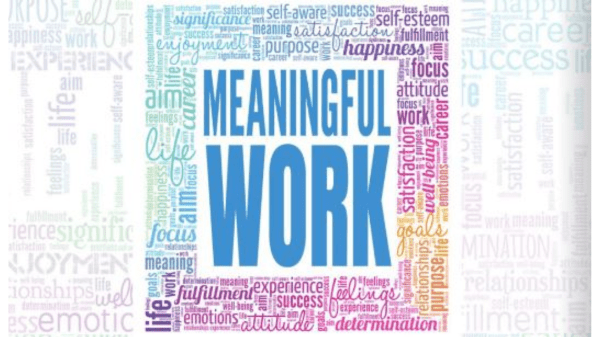There are dangers in tying the meaning of one’s life too closely to a profession.
“When you shift your meaning to the workplace, you shift it away from other institutions,” contends Carolyn Chen, a sociologist at the University of California at Berkeley and the author of Work Pray Code: When Work Becomes Religion in Silicon Valley.
“It might be the family, neighborhood, it might be your church, your synagogue, or other social institutions,” she writes.
In the produce industry, the danger often takes the form of stress.
Wendy McManus, a leadership coach who specializes in the produce industry, notes that her clients in the field (who account for around 95 percent of her practice) “seem to be a bit more weighed down than my clients in other industries. The 24-7, the perishability, the razor-thin margins, and the dependence on Mother Nature create such a pressure cooker.”
This stress often takes the form of clients not setting boundaries or turning off their phones or laptops. “They could have a conversation with their manager and supervisor and tell them how it’s affecting them, but they’re afraid to do that. They could be delegating more if they’re in a leadership position.”
As a solution, McManus counsels her clients, first of all, to simply breathe: “Take 30 seconds, center themselves, drop down into their body, get into this present moment, and get their brain out of this past and future cycle of thinking.
Unfortunately, most people don’t do this and were not trained how to do it. Yet once people are able to master the skill, McManus says they can be the calm at the eye of hurricane.
A great deal of stress has to do with other people, coworkers. A common saying in management these days is “You don’t quit your job; you quit your boss.”
McManus has some advice: “Any relationship is a system, even if it’s just two people. If one person shifts, the other person shifts.
“Once a person gets coaching, they start to show up differently,” she explains. “It doesn’t magically give the other person a personality transplant, but usually the other person will start to shift in noticeable ways.”
Of course, one person ultimately has no control over the other.
“In fact,” McManus notes, “the more you try to force, persuade, control, somehow manipulate them to be different than what they are right now, the more they’re going to resist it, and the less result you’re going to get. We really focus on the person who’s showing up here in coaching, and how they need to show up differently.”
This includes controlling their own reactions and realizing other people have their own thing going on, which may or may not have anything to do with them, continues McManus. Again, she counsels learning to breathe and to center oneself.
Often, she says, situations that felt completely untenable improve. But, she adds, “Sometimes, however, it means people have to move on.”
This is an excerpt from a feature story in the September/October 2022 issue of Produce Blueprints Magazine. Click here to read the whole issue.



